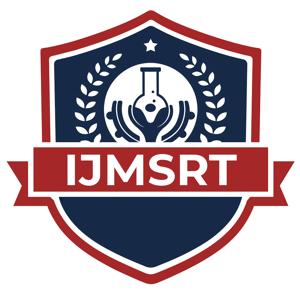Open access Policy
1. Introduction
Our journal website is committed to promoting open access to scientific research. This Open Access Policy outlines our principles and guidelines for the dissemination of scholarly work without barriers, allowing for wider access and increased visibility of research outcomes. We aim to foster the advancement of knowledge and encourage the global exchange of scientific information.
2. Principles of Open Access
Accessibility: All published articles will be freely available to the public without any subscription or paywall restrictions. This ensures that anyone, regardless of their affiliation or financial resources, can access and benefit from the research published on our website.
Licensing: Authors retain the copyright of their articles and grant the journal a non-exclusive license to publish the work under a Creative Commons Attribution License (CC BY). This license allows others to distribute, remix, adapt, and build upon the work, even for commercial purposes, as long as they properly attribute the original authors.
Peer Review: Open access does not compromise the quality or rigor of the peer review process. All articles published on our website will undergo a thorough and unbiased peer review to ensure their scientific validity and integrity.
Preservation: We will take measures to ensure the long-term preservation and accessibility of the published content. This includes archiving articles in recognized digital repositories and implementing backup systems to prevent data loss.
Transparency: We will provide clear and transparent information about the open access status of our articles, including the licensing terms, to enable readers and researchers to understand their rights and permissions.
3. Implementation of Open Access
Article Processing Charges (APCs): To sustain the open access model, we may charge authors a reasonable and transparent APC to cover the costs associated with the publication process. These charges, if applicable, will be clearly communicated to authors during the submission process. We will ensure that the APCs do not create barriers for authors who lack the financial means to cover the costs and will provide waivers or discounts based on individual circumstances.
Embargo Periods: In some cases, there may be embargo periods imposed on the immediate availability of published articles. This could be necessary to comply with funding agency requirements or address specific considerations. However, the maximum length and conditions of embargo periods will be clearly communicated, and authors will have the option to choose shorter or no embargo periods when appropriate.
Collaboration with Institutions and Funders: We will collaborate with academic institutions, funding agencies, and research organizations to promote open access and align our policies with their initiatives. We will support authors in meeting the open access requirements of their institutions and funders, including providing necessary information and facilitating compliance with funding mandates.
Promotion and Dissemination: We will actively promote the open access articles published on our website through various channels, including social media, email alerts, and academic networks. We encourage authors to share their work widely and engage in public outreach to maximize the impact of their research.
4. Conclusion
Our Open Access Policy reflects our commitment to fostering a global knowledge-sharing environment. By removing barriers to access and encouraging the unrestricted use of published research, we aim to facilitate innovation, collaboration, and the advancement of scientific knowledge for the benefit of society as a whole.
